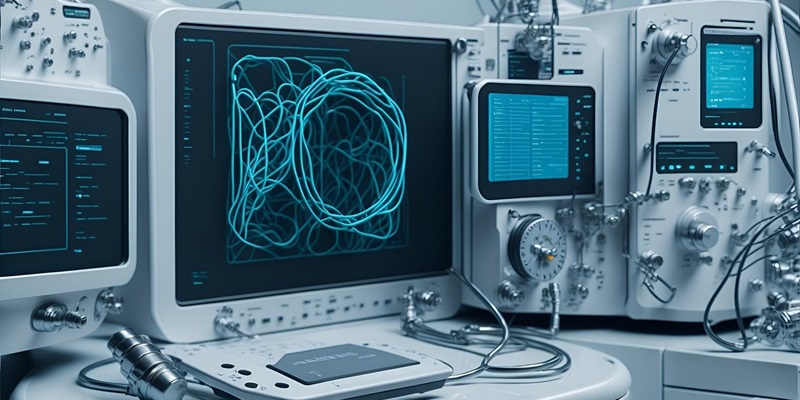In recent years, the healthcare industry has witnessed a significant transformation fueled by advancements in digital technologies. This digital revolution has revolutionized the way healthcare professionals operate, improving patient care and outcomes. One particularly impactful innovation that has played a key role in this transformation is the adoption of Radiology Information Systems (RIS).
The role of Radiology Information Systems (RIS) in the digital transformation
Radiology Information Systems (RIS) have emerged as crucial tools in the modern healthcare landscape. These software solutions have streamlined the operations of radiology departments, enabling healthcare professionals to efficiently store, access, and analyze medical images and patient data. RIS has proven to be an indispensable component of the digitization efforts within the healthcare sector.
Explanation of Radiology Information Systems (RIS)
Radiology Information Systems (RIS) are comprehensive software solutions that specifically manage the workflow and operations of radiology departments. These systems facilitate the digitization and automation of various processes, leading to increased efficiency and improved patient care.
Functions of RIS in managing radiology departments
RIS performs a multitude of functions that optimize the management of radiology departments. It enables healthcare professionals to schedule appointments, track patient records, generate reports, and manage billing and inventory. These functionalities improve communication, workflow, and decision-making within radiology departments, resulting in enhanced patient care and outcomes.
The Importance of Digitizing Processes in Healthcare
The digitization of healthcare processes through systems like RIS is integral for several reasons. Firstly, it reduces reliance on paper-based systems, eliminating the risk of data loss or misplacement. Secondly, digitized processes enhance accessibility and sharing of patient data, enabling seamless collaboration between healthcare professionals. Lastly, it improves the accuracy and efficiency of medical imaging analysis, leading to quicker and more accurate diagnoses.
Benefits of RIS in healthcare
One of the significant advantages of adopting RIS is the improved efficiency of radiology departments. With streamlined workflows, healthcare professionals can easily manage patient appointments, access medical images, and generate reports promptly. This efficiency translates into reduced waiting times for patients, increased throughput, and optimized resource utilization within radiology departments.
Enhancing the accuracy and speed of diagnosis
RIS empowers radiologists with advanced tools and features that enhance the accuracy and speed of diagnoses. By digitizing medical images, RIS facilitates easy storage, retrieval, and analysis, leading to more accurate interpretations. Additionally, RIS can integrate with diagnostic algorithms and artificial intelligence (AI) technology to assist radiologists in identifying abnormalities and making precise diagnoses.
Improving the overall patient experience
The integration of RIS in healthcare significantly improves the overall patient experience. With streamlined appointment scheduling and reduced waiting times, patients can access radiology services more conveniently. Moreover, RIS enables seamless sharing of images and reports across departments, ensuring that patients receive prompt and coordinated care. These improvements contribute to higher patient satisfaction and better healthcare outcomes.
Adoption of RIS in healthcare organizations
The adoption of RIS brings numerous benefits to healthcare organizations and patients alike. For healthcare organizations, RIS optimizes resource utilization, reduces administrative burdens, and improves revenue cycles. This results in cost savings and enhanced operational efficiency. On the patient side, RIS introduces convenience, better access to care, and improved diagnostic accuracy, ultimately leading to improved health outcomes.
Potential for integration with other digital health technologies
The integration of RIS with other digital health technologies holds immense potential for optimizing healthcare outcomes. AI-powered algorithms, when integrated with RIS, can assist radiologists in analyzing medical images, leading to more accurate and efficient diagnoses. Additionally, telemedicine platforms can leverage RIS to enable remote access to patient data and images, facilitating virtual consultations and reducing the need for physical visits.
Integration of RIS with AI and telemedicine
The integration of RIS with AI-powered algorithms has the potential to revolutionize medical imaging analysis. These algorithms can quickly and accurately identify patterns or abnormalities in images, assisting radiologists in making precise diagnoses. The combination of RIS and AI significantly enhances the accuracy, speed, and efficiency of radiology departments.
Utilizing RIS for remote access to patient data in telemedicine
Telemedicine has gained increased prominence in recent times, especially with the ongoing COVID-19 pandemic. RIS plays a crucial role in enabling remote access to patient data and medical images in telemedicine consultations. By securely storing and sharing data, RIS ensures that healthcare professionals can provide virtual care services, reducing the need for patients to physically visit healthcare facilities.
Future prospects of RIS in Europe
The future of RIS in Europe looks promising, with the potential to further enhance healthcare outcomes and patient experiences. As technology continues to advance, RIS will evolve to incorporate more advanced features, such as predictive analytics and machine learning algorithms. These advancements will enable more accurate diagnoses, personalized treatment plans, and improved patient engagement.
In conclusion, the adoption of Radiology Information Systems (RIS) has played a pivotal role in Europe’s digital transformation in healthcare. RIS has revolutionized radiology departments by streamlining operations, improving efficiency, and enhancing patient care. Through integration with AI and telemedicine, RIS further elevates healthcare outcomes by enabling accurate diagnoses and facilitating virtual consultations. The future of RIS in Europe holds immense potential for advancing healthcare through improved outcomes and patient experiences.

